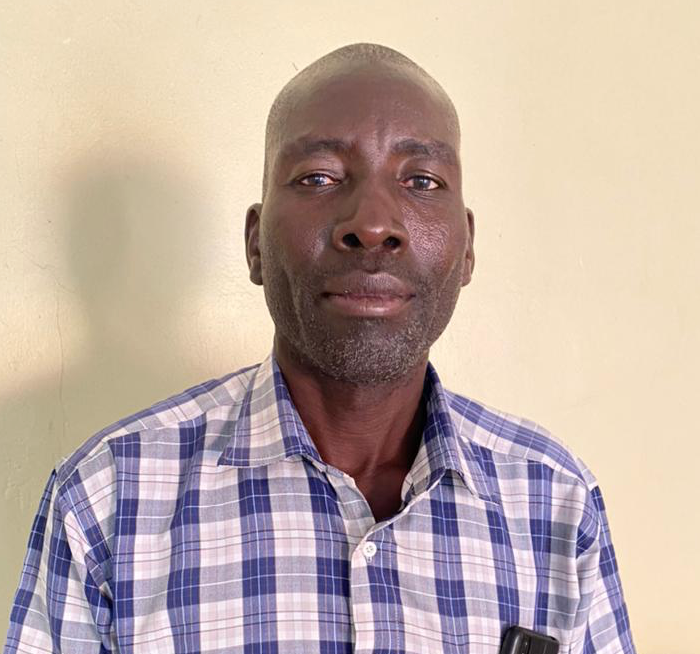As the rest of Uganda readies itself to finally get its oil out of the ground with the conclusion of the Final Investment Decision (FID), Mugisha Jealousy, 50, is one of those following the events with a mournful resignation.
A resident of Kasenyi village, Nile Parish in Buliisa district, Mugisha is one of those affected by the Tilenga project, a multipronged project by Total E&P. The project involves reservation and development of land in districts of Buliisa and Nwoya for oil exploration, setting up of a crude oil processing plant and related infrastructure to support Uganda’s oil production activities.
In the inaugural resettlement plan (Resettlement Plan one), a total of 643 persons were affected by the Tilenga Project. Mugisha says that in most of these cases, Total E&P would demarcate land it wanted to use, arbitrarily evaluate it and proceed to fence it off for use, regardless of whether the occupants of the land agreed to the valuation or not. This, Mugisa says is the crux of the injustice:
"For those of us who never agreed with Total E&P’s valuation, we were never compensated, yet our land was fenced off, leaving us helpless. For example, after Total E&P’s valuation, my home was gazetted as a secondary home, which meant that I would not be relocated but would instead be paid a mere Shs.12million as compensation, which I refused, because can you build a reasonable home today with Shs.12million,”
Mugisha Jelousy Tweet
In 2019, alarmed by Total E&P’s activities, Mugisa and a few other colleagues appealed to local NGOs among which were Africa Institute for Energy Governance (AFIEGO) and the National Association for Professional Environmentalists (NAPE), which, partnering with two other French NGOs supported the project affected persons to sue Total E&P for abuse of the former’s rights in France. Mugisha was one of the project-affected persons who travelled to France to testify in the case, and on return, he was briefly detained at Entebbe International Airport
"I was held for about seven hours and was warned to stop activism against the Tilenga project. It appears the purpose was to threaten and intimidate me, because I was later released,”
Mugisha Jelousy Tweet
But Mugisha says he will not be deterred. Following the lawsuit by the project-affected persons in France, Uganda government through the Attorney General moved to deposit the compensation money declined by the project-affected persons in court, to pave way for the Tilenga project activities to go ahead. Although the Masindi High Court ruled in the Government and Total E&P’s favor last year, Mugisa says he and his colleagues are ready to appeal the High Court’s decision.
I was held for about seven hours and was warned to stop activism against the Tilenga project. It appears the purpose was to threaten and intimidate me, because I was later released
Mugisha Jelousy Tweet
But Mugisha says he will not be deterred. Following the lawsuit by the project-affected persons in France, Uganda government through the Attorney General moved to deposit the compensation money declined by the project-affected persons in court, to pave way for the Tilenga project activities to go ahead. Although the Masindi High Court ruled in the Government and Total E&P’s favor last year, Mugisha says he and his colleagues are ready to appeal the High Court’s decision.
"If Total E&P cannot give me the money for which I think my home is due, let them resettle me. All I want is an alternative piece of land, complete with a house for me to be relocated to so I can vacate my current land. Other people who did not have houses on their lands want to be resettled on other lands. They want land for land, not money, because Total E&P will not give them the money, they think their land is due"
Mugisha Jelousy Tweet
Beyond compensation, Mugisa is also worried at the long-term environmental costs the Tilenga project’s activities are going to have on Buliisa district and its people.
“For example, Total is planning to construct a Central Processing Facility on 772 acres. It has contracted Motor Engine to prepare the land, and Motor Engine proceeded to clear all the 772 acres of all vegetation, leaving the entire land bare. Imagine 772 acres of bare ground, no grass, no vegetation, nothing. All the neighboring areas are being suffocated by dust,”
Mugisha Jelousy Tweet
As Chairperson of the Resettlement Planning Committee under the Resettlement Action Plan One, Mugisha has moved to challenge this naked abuse of the environment, and last year, he wrote to Total E&P highlighting these environmental risks, forcing Total E&P, Motor Engine to meet up with the affected communities to devise a way forward.
Mugisha continues to face threats for his relentless activism. He says he is always monitored for who he meets with, and whenever people come to meet him at his place, they are tracked and intimidated to not meet up with him again.
“But I will not be deterred. Our people must be compensated for what they are worth, because this (Oil and Gas) is a multi-billion-dollar project,”
Mugisha Jelousy Tweet

